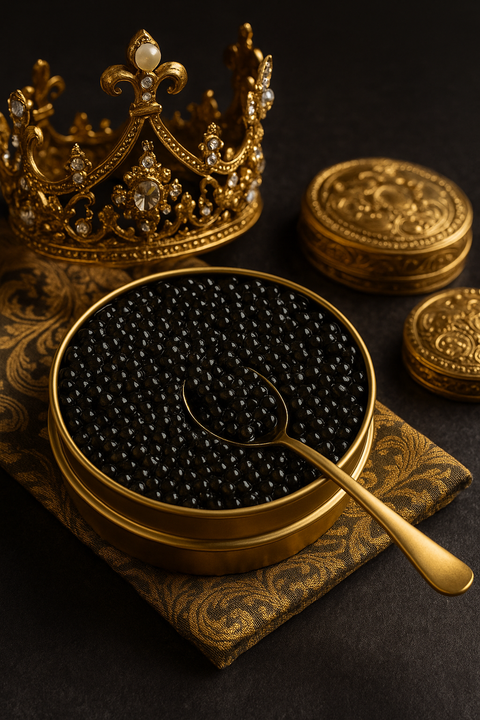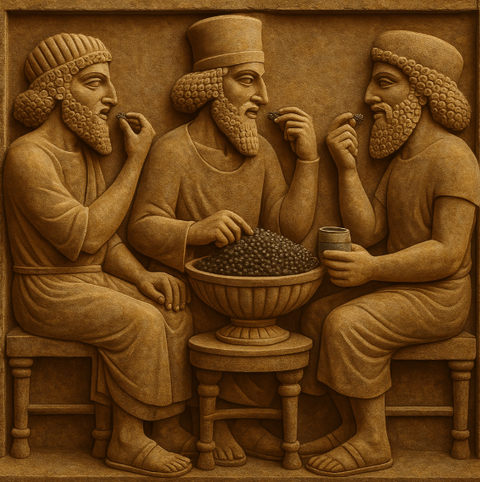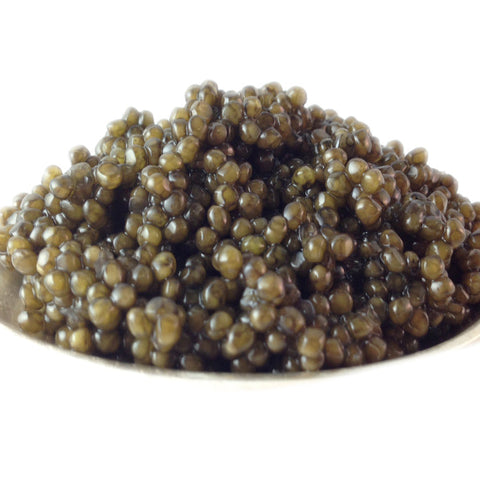Caviar Rarity and Exclusivity:
Caviar is made from the salted eggs (roe) of sturgeon, a fish that was once abundant in the Caspian and Black Seas. But even when sturgeon were more plentiful, harvesting their roe was no easy feat. The rarity of certain sturgeon species, like the Beluga, made their eggs a prized commodity. For kings who thrived on exclusivity, serving something so hard to obtain elevated their status and reinforced their wealth and power.
A Symbol of Wealth and Sophistication:
In royal courts, food was as much about image as it was about sustenance. Serving caviar wasn’t just about taste—it was a power move. Caviar became synonymous with opulence, showing guests and rivals alike that the king could afford the best of the best. It was a mark of refinement and high taste, often reserved for the most prestigious events.

Caviar Health Benefits Fit for a King:
Long before modern science confirmed the nutritional value of caviar, it was often prescribed by royal physicians. Packed with omega-3 fatty acids, vitamins A, D, and B12, and high-quality protein, caviar was believed to boost vitality, improve stamina, and even act as an aphrodisiac. For kings concerned with vigor and longevity, these benefits made caviar not only indulgent, but functional.
Cultural Prestige and Tradition:
In regions like Russia and Persia, where caviar originated as a delicacy, it became deeply embedded in cultural and royal traditions. Russian tsars were known to consume caviar lavishly and export it as a diplomatic gift. Persian kings, too, considered it a delicacy worthy of their exalted position. Its place in court rituals and royal banquets elevated its cultural status across empires.

Caviar Flavor Beyond the Ordinary:
To the refined palate of royalty, caviar offered something few other foods could—a briny, buttery, umami-rich experience that danced across the tongue. When paired with champagne or vodka, it delivered a luxurious sensory journey that embodied everything elite dining was meant to be. Kings craved not just nourishment, but culinary distinction.
Final Thoughts:
Caviar wasn’t just food—it was a statement. A declaration of dominance, sophistication, and supreme taste. From the grand palaces of Russia to the courts of Europe and the Middle East, kings relished caviar not just because it was delicious, but because it was powerful. Today, while caviar remains a luxury, its royal roots remind us that behind every spoonful lies a legacy of indulgence, tradition, and prestige.
Shop and buy caviar here!




